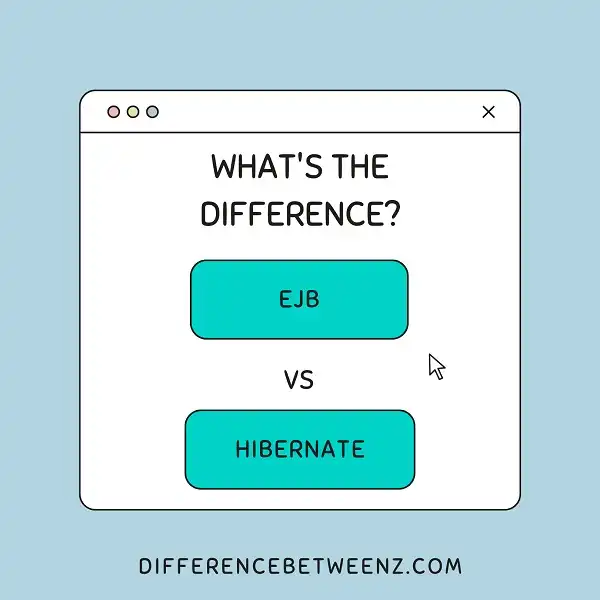EJB and Hibernate are two different technologies used in Java development. While they have many similarities, there are also some key differences. In this blog post, we’ll take a look at those differences and explore why you might choose one over the other.
What is EJB?
EJB is an Enterprise Java Bean. It is a component of Java EE that is used to build large-scale, enterprise-level applications. EJB components are written in Java and run on an EJB container. The EJB container is responsible for managing the EJB components and providing access to other services in the application server. EJB components can be used to implement business logic, create web pages, and access databases. EJB components are packaged into jar files and deployed on an EJB server. EJB servers provide a runtime environment for EJB components. EJB servers are available from a number of vendors, including IBM, BEA, and JBoss.
What is Hibernate?
Hibernate is a framework for Java that provides Object-Relational Mapping (ORM) capabilities. It enables developers to work with data from relational databases in an object-oriented way, making it easier to develop applications. Hibernate also offers a number of features that can improve the performance of applications, such as caching and lazy loading. In addition, Hibernate is open-source and can be used in both commercial and non-commercial projects.
Difference between EJB and Hibernate
EJB Enterprise Java Bean and Hibernate are two popular frameworks for developing Java applications. EJB is a component-based framework that is used to build enterprise applications. It provides a platform for component developers to create and deploy reusable components. Hibernate, on the other hand, is a data access framework that is used to develop data-driven applications.
- It provides a mechanism for mapping objects to database tables, and it also includes a query language that can be used to retrieve data from the database. Although EJB and Hibernate are both widely used frameworks, there are some key differences between them.
- EJB is geared towards enterprise application development, while Hibernate is primarily focused on data access. EJB components are deployed on an EJB container, while Hibernate applications can be deployed on any servlet container.
- EJB also has stricter rules and requirements than Hibernate, which can make development more time-consuming. However, EJB components are usually more error-prone than Hibernate applications.
As a result, it is important to choose the right framework for the job at hand. If you need to develop a complex enterprise application, then EJB is the best choice. However, if you need to develop a simple data-driven application, then Hibernate might be a better option.
Conclusion
In short, Hibernate is an ORM tool that helps you map Java objects to a relational database, while EJB is a framework for developing and deploying enterprise applications. If you’re looking for something that can help you manage your data in a more efficient way, go with Hibernate. But if you need more comprehensive features for developing and deploying large-scale Java applications, then EJB is the better choice.


